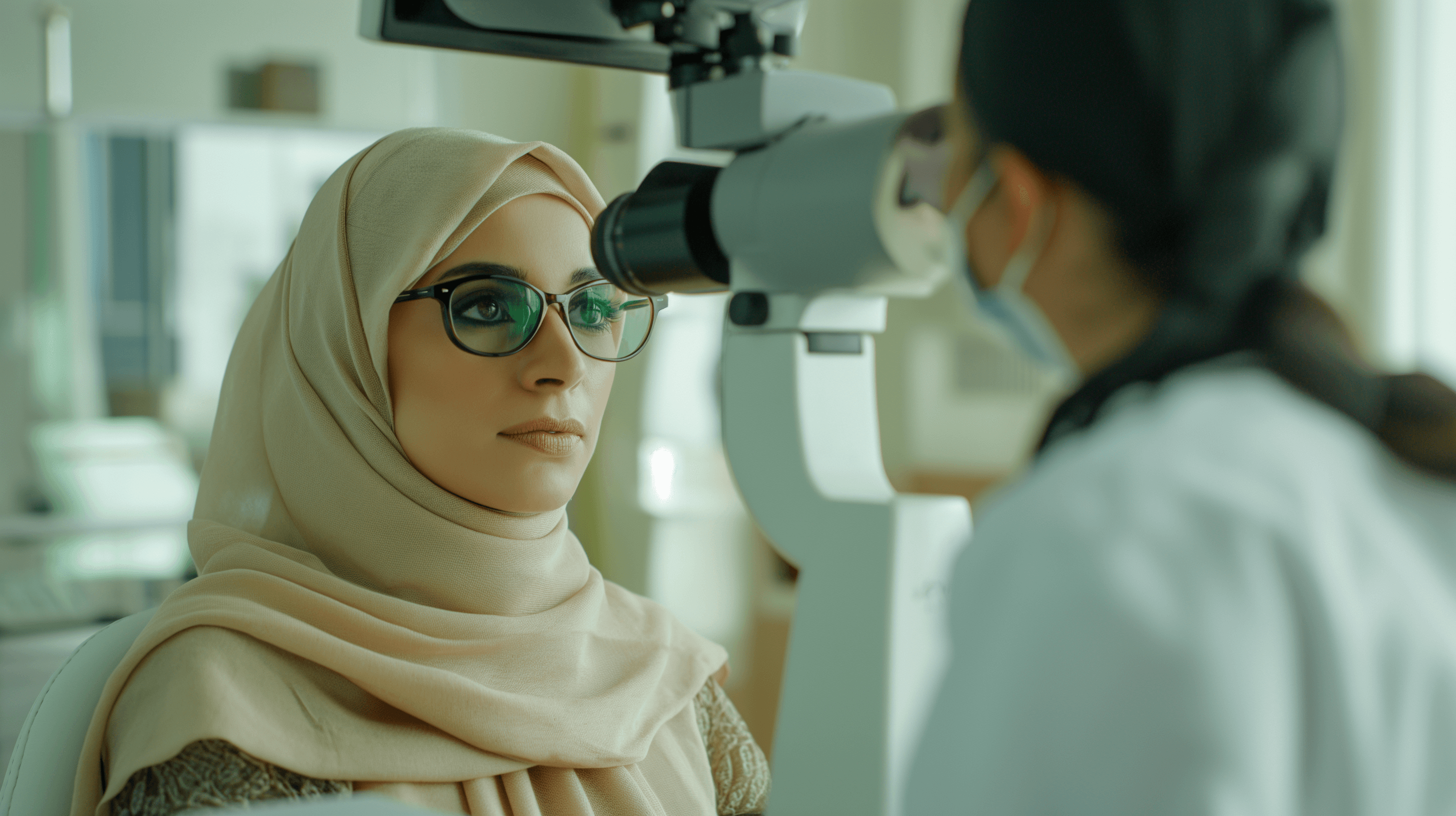When Should You Visit an Optician?
Unless you're wearing glasses or have recurring eye issues, it’s usually rare to find someone without eye problems visiting an optician.
By Team ArabiaMD

How Often Should You Visit an Optician?
Visiting an optician regularly is important for maintaining good eye health. Ignoring eye problems can lead to severe issues in the long run. If you wear glasses or have recurring eye issues, you may already be visiting an optician regularly. But for those without eye problems, it's important to know when to visit an optician.
Recommended Timeline for Optical Tests
- The recommended timeline for optical tests is generally once a year or every two years.
- These tests are essential for detecting any underlying eye conditions and ensuring that your eyes are healthy.
- Many clinics offer free eye checkups, making it easily accessible for everyone.
What Happens During an Eye Test?
- During an eye test, an optician will perform various tests to assess your eye health and determine if there are any issues.
- This may include reading tests to check your ability to read large and small letters, testing your tolerance to normal light, and conducting an eye scan.
- The results will indicate whether you have good eyesight, require an optical prescription for any detected eye problems, or need further tests for complex conditions.
- It is your right to receive your optical results, so make sure to address any concerns or complaints immediately.
Different Eye Healthcare Professionals
There are different types of eye healthcare professionals who specialize in different aspects of eye care. These include:
- Dispensing opticians: They fit contact lenses and glasses based on the treatment prescription given.
- Ophthalmic medical practitioners: These are medically qualified doctors who specialize in eye care. They examine eyes, diagnose abnormalities, test sight, and prescribe the best corrective lenses.
- Orthoptists: They specialize in eye movement disorders and squints.
- Optometrists: They are experts in recognizing eye abnormalities and examine your eye's internal and external structure to detect conditions like glaucoma, cataracts, and macular degeneration.
- Ophthalmologists: They are eye surgeons or doctors who specialize in the surgical and medical care of the visual system and eyes.
Signs You Should Visit an Optician
Here are some signs that indicate you should visit an optician:
Poor Vision
- If you find yourself holding objects too close or too far to read their contents, it may indicate a vision problem.
- You could be developing short or long-sightedness, or you may have presbyopia, an age-related optic condition that affects the elderly.
Dry, Red, or Itchy Eyes
- Dry, red, or itchy eyes can be symptoms of various eye conditions.
- While they may subside after a few minutes, frequent occurrences should prompt a visit to an optician for a diagnosis.
Skipped Your Last Appointment
- If you've forgotten your last appointment or haven't had one in a while, it's time to schedule a new one.
- Regular checkups are essential for monitoring your eye health and addressing any issues that may arise.
- It's important to be proactive and stay aware of your eye health.
Conclusion
Regular visits to an optician are crucial for maintaining good eye health. Ignoring eye problems can lead to more severe issues and potential long-term consequences. Schedule your next optical visit with an optician near you to ensure that your eyes are in good condition and to address any concerns.